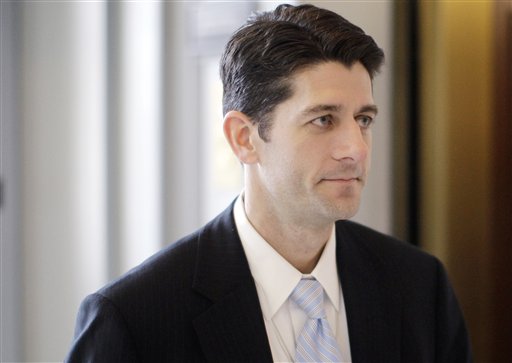The very first order of business for the new Republican majority in the House of Representatives was to institute a new set of rules for how the House will operate for the next two years. Among these rules: the “cut-as-you-go” provision — any legislative undertaking that includes new spending adding to the deficit must be matched by equivalent spending cuts.
However, the first legislative priority of the new leadership is to repeal healthcare reform — the Affordable Care Act. And today, the Congressional Budget Office released a preliminary analysis declaring that repealing ACA would increase the deficit substantially — by $145 billion through 2019, and by far more in the years afterward.
This might seem to set up a paradox. Could John Boehner, Eric Cantor, and Paul Ryan — the new chair of the House Budget Committee — really intend to break their own rules with their first bill? No, of course not — they’re not that silly. Page 26 of the rules document explicitly exempts repeal of ACA from having to follow the cut-as-you-go rule!
(C) exempt the budgetary effects of measures — (i) repealing the Patient Protection and Affordable Care Act and title I and 3 subtitle B of title II of the Health Care and Education Affordability Reconciliation Act of 2010;
(The new rules also exempt any kind of tax cut from the cut-as-you-go requirement. We already knew that this was implicit Republican policy, but it’s nice to have it in writing.)
The explicit exemption for ACA repeal would seem to be tacit acknowledgment that healthcare reform, contrary to Tea Party rhetoric, is not a budget-buster. Because if Republicans could prove that healthcare reform will add to the deficit, you’d think they’d go ahead and show their own numbers rather than embarrassingly be forced to define their own rules so as to exclude the ACA. But you’ll never hear them admit that. The Republican position, as articulated by Ryan, is that the CBO analysis doesn’t reflect reality, so it can be ignored.
CBO scores what is put in front of them — and what Democrats put in front of them last year was legislation packed with smoke and mirrors to hide the impact of trillions of dollars in new spending.
Getting to the bottom of what constitutes material reality when calculating the costs of a legislative initiative as complicated as the ACA is an epistemological nightmare. I have no doubt there is some smoke and mirrors involved in healthcare reform — although at least Democrats made an <I>effort</i> to get the numbers to add up, which is far more than Republicans ever did the last time they were in control of Congress. But if CBO scores “what is put in front of them” then one has to wonder why the new House leadership isn’t asking CBO for a new score of the health care bill that incorporates all the critiques that Ryan et al would care to “put in front of them.” Instead, they’re skipping that part, and going straight to repeal.
Maybe the House leadership feels like they won’t get a fair shake. The CBO is supposed to be non-partisan, but the director is appointed by the Speaker of the House and the President Pro-tem of the Senate, and in the case of the current occupant, Doug Elmendorf, the relevant parties were Nancy Pelosi and Robert Byrd — two Democrats. Unsurprisingly, they picked someone with a long history of working on health care budget accounting in Democratic administrations.
Fair enough. But there’s a distressing truth about our political process implicit in Ryan’s dismissal of the CBO numbers. And that is that the numbers, ultimately, don’t mean anything. If the party in power is only going to accept the numbers that match up with its political priorities, then the CBO is a completely useless government agency.


